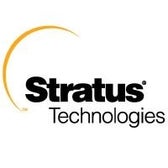Stratus seizes on growing ownership in China

The Chinese automobile market is the fastest-growing in the world, as an ownership boom has boosted the number of cars on that country’s roads from about two million in 1992 to more than 20 million in 2013, according to an analysis by Tsinghua University in Beijing.
Naturally, that’s leading to increased emissions and energy consumption. But it’s also requiring a level of automation in traffic infrastructure systems, such as toll booths. And for companies like Stratus Technologies Inc. of Maynard, that’s good news.
Catching up on technology, Asia demands automation
A 35-year-old company, Stratus historically made its bread and butter by making and selling servers, but in the last five years has gradually transitioned to a software company. The software is the “secret sauce” that ensures continuous performance in servers owned by thousands of users around the globe, said Nigel Dessau, the company’s chief marketing officer.
“We really are the world leader in ultimate levels of availability,” Dessau said, referring to the Stratus technology that provides systems with the capability to be “always on.”
It’s not just car ownership that’s driving opportunity in China, and Asia at large, according to Dessau. Ownership in general is increasing among the Chinese population, so there’s a great need for automated systems to make manufacturing in all sectors more efficient, Dessau said.
Last week, Stratus announced it’s expanding its partnership with Chinese company Shanghai Hi-Tech Control Systems Co., which will deliver Stratus’ latest platform, everRun Express, to the Chinese market under the brand name H&i Server. The solution is already employed in the traffic monitoring and management system that was installed for the 2008 Beijing Olympics, and the 2010 Shanghai World Expo traffic control and management systems.
Dessau said the country that was once the “go to” for cheap manufacturing has grown beyond that, and is maturing into a system that, like the U.S., relies on automation over manpower in manufacturing. But China is still catching up, applying the technology that U.S. manufacturers did about 20 years ago.
“That brings a higher level of quality as well, so our sort of technology becomes critical to that,” Dessau said.
While Asia is the fastest growing market for Stratus, which employs about 260 at its Maynard headquarters, everRun is providing “always on” technology to a vast array of industries across the world. It helps manage security at the doors of Logan International Airport, for instance, and helps power pumping stations for huge natural gas pipelines. Chances are, if you dial 9-1-1, that data is running on Stratus software or hardware.
Servers to remain in the mix
Speaking of hardware, Dessau said that today, the business is split evenly between software and hardware clients. It will continue to shift toward software, but servers will always make up some part of the business, according to Dessau, who is skeptical of the notion that all servers will be replaced by software services. Servers, he said, are connected directly to Stratus headquarters, so if a client has a problem, it’s very likely the company can fix it without sending employees to far-flung sites.
In China, which represents about 25 percent of Stratus’ market, the money is mostly in software. Asian countries, he said, prefer not to buy hardware from U.S. companies, but they are wooed by the benefits of software like everRun, which is particularly useful in operations where employees lack information technology skills.
“The person running the production line doesn’t necessarily have to interface with our software … What they know is, it doesn’t break, it just keeps going,” Dessau said.
Image source: Freedigitalphotos.net











0 Comments